FULL SNOW MOON – SORROW AND KINDNESS
by angeliska on February 25, 2013
The Snow Moon of February is waxing, rising: also know as Storm Moon, Hunger Moon, Bony Moon and Little Famine Moon. In most places, this is the month of the heaviest snows, the harshest weather, and the hardest hunting. This was often a season of starvation, for the native people and animals in the North. Though it’s springtime here in the South, I know other places are still bitter cold, still blanketed under heavy folds of white ice. I don’t know what that’s like, but I have been sitting with this winter feeling, a frostbitten heart warmed back to beating by hot breath, soft mittens. I told the daffodil buds pushing shyly through the mulch that it was safe to raise their ruffled heads, that the time of frost and rime was done with. I hope I wasn’t lying. This year has cored me like an apple: taken all the parts of me that I thought were essential, and chewed them up, spit out the pips, left nothing but my stem and my skin. It was enough. I have a palmful of seeds to plant anew, I have my heart, I have this dirt. I came through slaughter, bloodied and broken, bowed. I came through. It’s taken a long time to write this. I began it when I was at my most shattered, and then shelved it for months when it was too raw, the pain too embarrassing. I felt tired of writing about my sorrow – though more than that, I felt tiresome. The fear got put in me, an arrow lodged between two ribs: the niggling doubt planted there, that what I chose to share was too much, too sad – wrong somehow. I stopped writing. I tried to write about only pretty things. I stopped. I was frozen in the middle of the road, gnawed on by the hungry scavengers, those wolves of the mind, that feast on your anxieties. In a long winter, the cold gets in your bones, it finds the drafts, the cracks in you, and it sucks the heat right out of your blood. That’s the way doubt works, too.
In the coldest months, the weakest animals in a pack get picked off, get left behind – eat or be eaten. You are either predator or you are prey. Your vulnerability is a liability, and fight or flight is the only choice. If you’re too tired to fight, and have nowhere to run, you just stop, freeze, forever. “The weak are meat the strong do eat.” Kill or be killed. A sacrificial lamb, a scapegoat, left desolate in the snow, the boot on your back, teeth at your throat, felled beneath a pitiless victor. The rapacious hunter whose hunger knows no bounds, so empty inside that no amount of flesh can fill a belly that’s just fur slung over bones. Hunger makes creatures cold-hearted and crazy, makes them turn against their own. This is the way of the world, the way of nature, I know. I can sit with it, I can look, and look and take it in. I won’t look away, but instead turn my gaze to the images that make my soul crumple, that speak to the bleak desolation of grief, the howling heart, alone in a vast landscape, crying in the bitter wind. Victims of severe frost, halted mid-motion by prisons of ice. O, innocents, wandering lost in the snow – death draws near with an icy scythe, to cut you down in one white instant. Winter is brutal, and all we can do is huddle together. The only way to survive is to help each other, to stay with your pack, to find your tribe. Our communities are all we have: our lovers, friends and family. The ones who keep you close, keep you warm at night. All we have is each other, so why do we hurt one another? Where does this capacity for cruelty come from? What is it that inspires kindness, the small acts of tenderness that make life possible even in the direst times? I’m coming to understand that our ability to experience grief and move through it can make us more kind, more compassionate to others. That awareness and empathy for suffering is what gives us the strength and love to extend compassion beyond ourselves. This can be a vicious world. Every act of grace and gentleness counts. Kindness changes everything. I’ve been rereading Cloud Atlas for the dozenth time, and have been thinking a lot about the themes that run through that beautiful book: of slavery and subordination, of the currents of love and bravery that triumph in the midst of the horrors we humans can inflict on each other.
“Our lives are not our own, we are bound to others, past and present. And by each crime and every kindness, we birth our future.”
I’ve also been delving into The Places That Scare You – A Guide to Fearlessness in Difficult Times, by Pema Chödrön recently, and finding much wisdom there. This book contains major teachings for me, and has given answers and solace in deep lessons that I feel I have been searching for for many years. The quote in the beginning of the book, and the explanation of bodhichitta pulled me in immediately:
Confess your hidden faults.
Approach what you find repulsive.
Help those you think you cannot help.
Anything you are attached to, let it go.
Go to the places that scare you.
– Advice from her teacher to the Tibetan Yogini Machig Labdrön
“An analogy for bodhichitta is the rawness of a broken heart. Sometimes this broken heart gives birth to anxiety and panic; sometimes to anger, resentment and blame. But under the hardness of that armor there is the tenderness of genuine sadness. This is our link with all those who have ever loved. This genuine heart of sadness can teach us great compassion. It can humble us when we’re arrogant and soften us when we are unkind. It awakens us when we prefer to sleep and pierces through our indifference. This continual ache of the heart is a blessing that when accepted fully can be shared with all.”
I read the chapter on cultivating compassion today, and it brought everything together for me so profoundly. Everything I’ve been struggling to write about for months is right here:
“For arousing compassion, the nineteenth-century yogi Patrul Rinpoche suggested imagining beings in torment — an animal about to be slaughtered, a person awaiting execution. To make it more immediate, he recommended imagining ourselves in their place. Particularly painful is his image of a mother with no arms watching as a raging river sweeps her child away. To contact the suffering of another being fully and directly is as painful as being in that woman’s shoes. For most of us, even to consider such a thing is frightening. When we practice generating compassion, we can expect to experience our fear of pain. Compassion practice is daring. It involves learning to relax and allow ourselves to move gently toward what scares us. The trick to doing this is to stay with emotional distress without tightening into aversion, to let fear soften us rather than harden into resistance.
“It can be difficult to even think about beings in torment, let alone to act on their behalf. Recognizing this, we begin with a practice that is fairly easy. We cultivate bravery through making aspirations. We make the wish that all beings, including ourselves and those we dislike, be free of suffering and the root of suffering.
“We use the seven-step aspiration practice to soften our hearts and also to become more honest and forgiving about when and how we shut down. Without justifying or condemning ourselves, we do the courageous work of opening to suffering. This can be the pain that comes when we put up barriers or the pain of opening our heart to our own sorrow or that of another being. We learn as much about doing this from our failures as we do from our successes. In cultivating compassion we draw from the wholeness of our experience — our suffering, our empathy, as well as our cruelty and terror. It has to be this way. Compassion is not a relationship between the healer and the wounded. It’s a relationship between equals. Only when we know our own darkness well can we be present with the darkness of others. Compassion becomes real when we recognize our shared humanity.”
To Practice: Choose an image that enables you to contact the suffering of another. If you find this too difficult or painful, recognize the teaching in your response.
Many of the following images depict death and sorrow in a graphic and deeply affecting way. If pictures of dead animals or profound grief are upsetting to you, you may not want to continue, though I attest that they were not chosen gratuitously. I have kept some of these images archived for years, not fully understanding why I needed to look at them, why I needed to make myself feel so deeply for them. Now I understand. I hope you will, too. Also: I was unable to track down the original provenance for many of these images. If you are the source, or if you are aware of who made the image, please let me know and I will ascribe it rightfully.
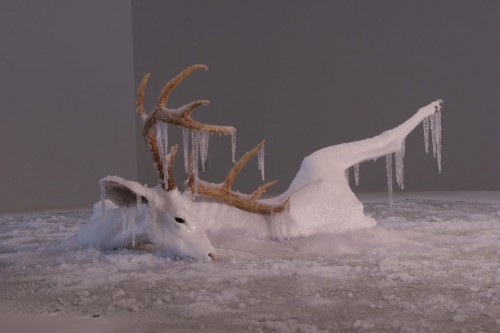
Untitled – Erick Swenson
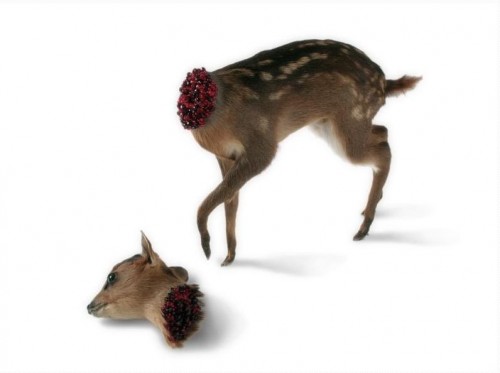
No Comment – Idiots
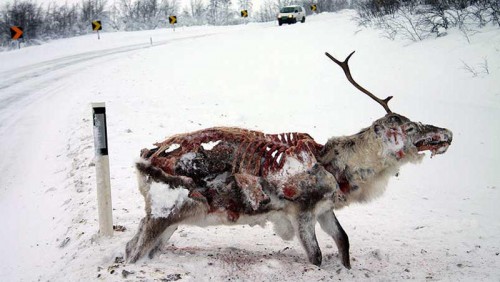
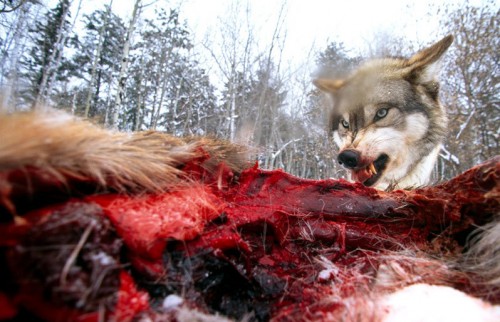
Snarling Wolf, Ely, Minnesota, 1998
“A remote-controlled “carcass cam” captures an inside view of a gray wolf fiercely guarding its meal at the International Wolf Center in Ely, Minnesota. Wolves at the center are provided with food, but wild populations generally hunt in packs. After a large kill, a single wolf can consume more than 20 pounds of meat.”
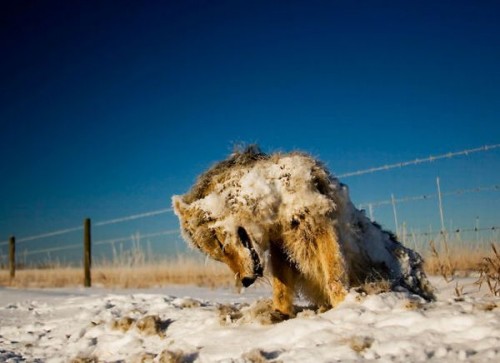
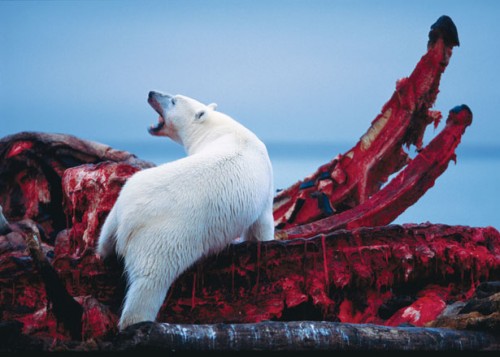
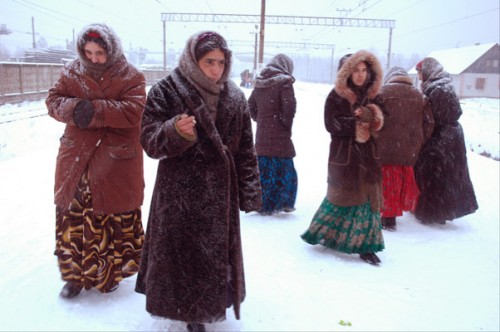

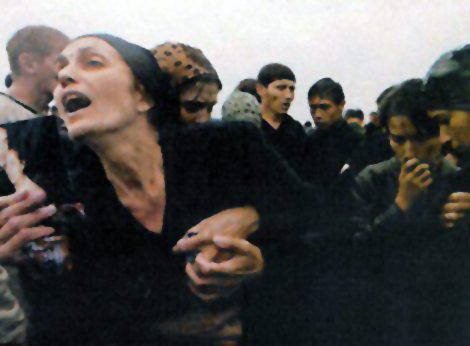
Yuri Kozyrev – Beslan, North Ossetia Sept. 5, 2004
I wish I could find a clearer version of this one. Somewhere I still have the scrap of the original cut out from a magazine when the tragedy at the Beslan school happened. I meditated on the pain and longing of the woman in the photo every day for a long time. Every fiber in her being outstretched, seeking her lost beloved one. The empathy and sorrow of the people surrounding her. The hands holding hers. The heart cries out.
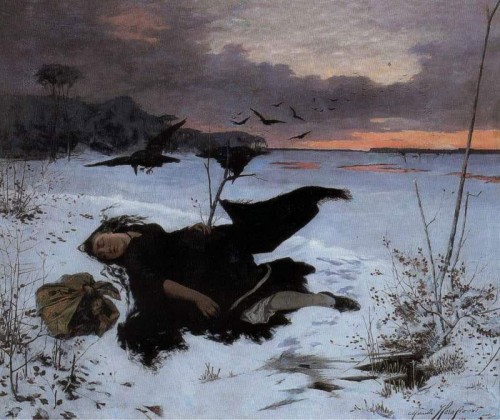
Marcel Harasimowicz – Zdobycz kruków (Prey Of Ravens), 1888
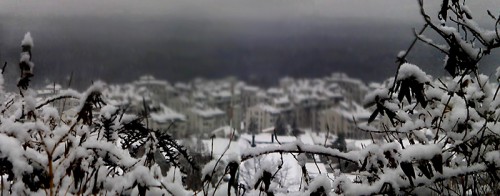
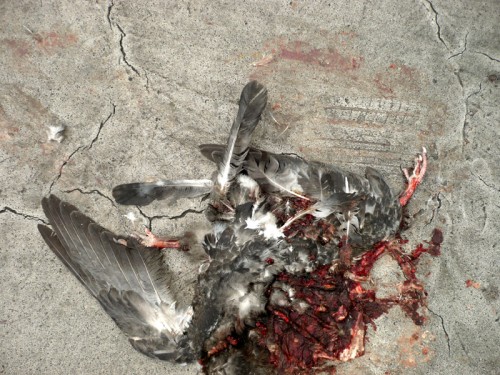
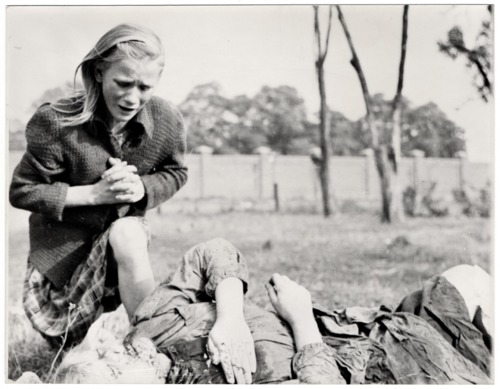
“Kazimiera Mika, a ten-year-old Polish girl, mourns the death of her older sister, who was killed in a field near Jana Ostroroga Street in Warsaw during a German air raid by the Luftwaffe.
“While I was photographing the bodies, a little ten-year old girl came running up and stood transfixed by one of the dead. The woman was her older sister. The child had never before seen death and couldn’t understand why her sister would not speak to her…
The child looked at us in bewilderment. I threw my arm about her and held her tightly, trying to comfort her. She cried. So did I and the two Polish officers who were with me…”
I had this photograph tacked up to the wall next to my bed all through my adolescence. Every night laying in bed I would look at it and feel so much love and sorrow for this girl grieving over the body of her sister. Even though I had not yet begun grieving my losses, I understood what it meant. I needed to look at it, at their faces.
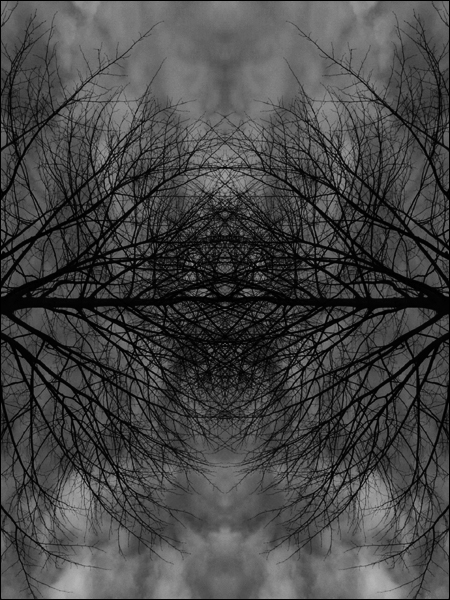

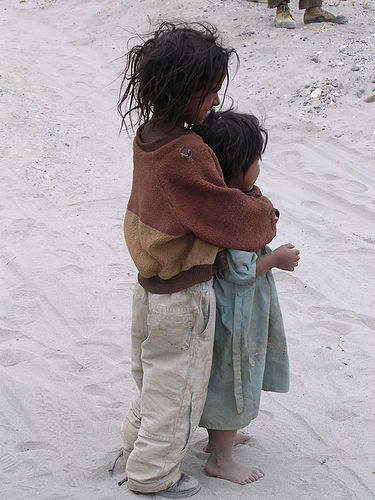
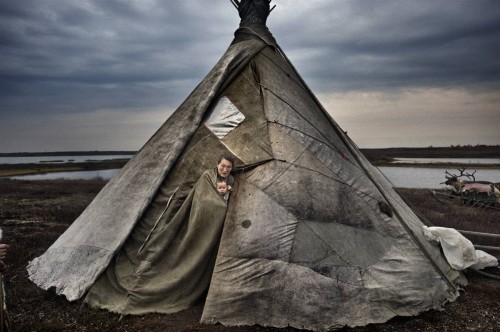
Photograph by Yuri Kozyrev
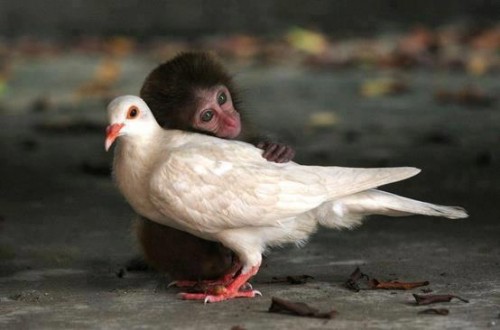
“An orphaned rhesus monkey and white dove that seemed to have lost its mate forged a special bond at the Neilingding Island-Futian National Nature Reserve in China. The monkey was born on the island but had strayed from its mother. Luckily, it was taken in by work staff in the protection center and became friends with the pigeon that had lingered there after possibly losing its mate.”
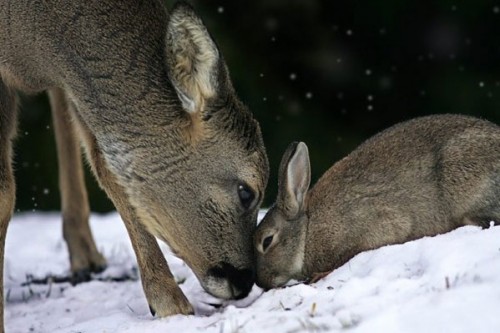
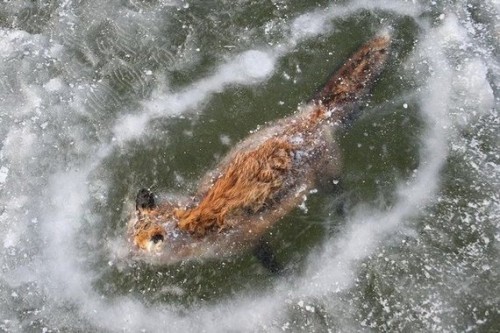
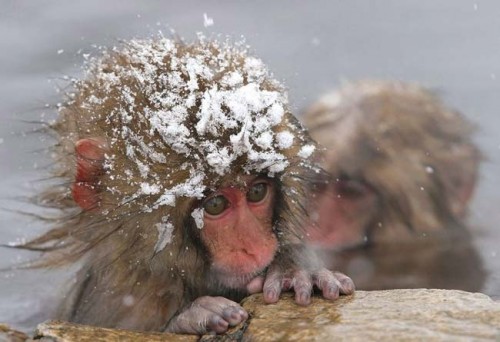
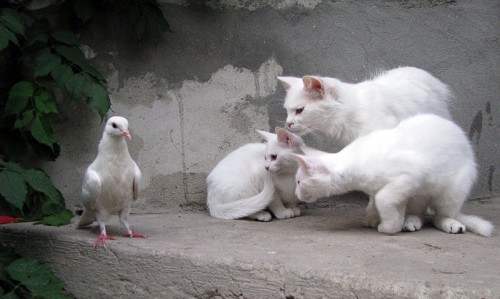
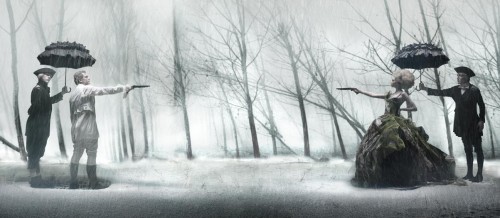
Photograph by Eugenio Recuenco
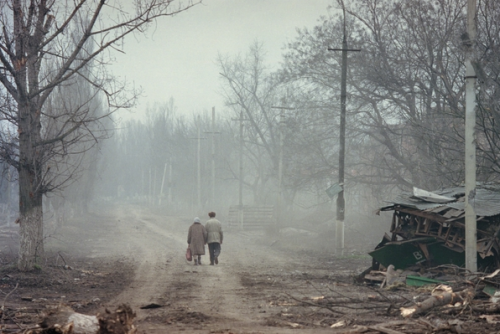
Photograph by Yuri Kozyrev
Kindness
Before you know what kindness really is
you must lose things,
feel the future dissolve in a moment
like salt in a weakened broth.
What you held in your hand,
what you counted and carefully saved,
all this must go so you know
how desolate the landscape can be
between the regions of kindness.
How you ride and ride
thinking the bus will never stop,
the passengers eating maize and chicken
will stare out the window forever.
Before you learn the tender gravity of kindness,
you must travel where the Indian in a white poncho
lies dead by the side of the road.
You must see how this could be you,
how he too was someone
who journeyed through the night with plans
and the simple breath that kept him alive.
Before you know kindness as the deepest thing inside,
you must know sorrow as the other deepest thing.
You must wake up with sorrow.
You must speak to it till your voice
catches the thread of all sorrows
and you see the size of the cloth.
Then it is only kindness that makes sense anymore,
only kindness that ties your shoes
and sends you out into the day to mail letters and
purchase bread,
only kindness that raises its head
from the crowd of the world to say
it is I you have been looking for,
and then goes with you every where
like a shadow or a friend.
– KINDNESS
by Naomi Shihab Nye
from The Words Under the Words: Selected Poems
The full Snow Moon in Virgo challenges us to release ourselves and others from judgement, from the critical mind that seeks to find fault, lay blame. We are all imperfect, fallible, messy beings. We make mistakes, we hurt one another, consciously or blindly. We are all doing the very best we can. This full moon I seek to open my heart up to true acceptance and forgiveness, for myself and others, and to let go of all my resentments, frustrations and grudges. They have been a very heavy burden. I don’t want them anymore. They do not serve me well. I am ready for peace. This is a time for healing. The Moon in Virgo opposing Chiron, The Wounded Healer, activates and shines a light on doing this work first in your own heart, and then with an eye towards service and helping others. The lesson I have been given recently is to make myself “incapable of disappointment” – in order to do that, I must give permission to all things to be exactly as they are. This is hard work, and I am trying. Snow Moon, help me to be kinder, gentler and more patient – to myself as well as others.
“Judge nothing, you will be happy. Forgive everything, you will be happier. Love everything, you will be happiest.” – Sri Chinmoy
“Three things in human life are important: the first is to be kind; the second is to be kind; and the third is to be kind.” – Henry James
FULL SNOW MOON IN VIRGO
Full Moon in Virgo: Into the Dark Woods
You do not have to be good.
You do not have to walk on your knees
For a hundred miles through the desert, repenting.
You only have to let the soft animal of your body
love what it loves.
Tell me about your despair, yours, and I will tell you mine.
Meanwhile the world goes on.
Meanwhile the sun and the clear pebbles of the rain
are moving across the landscapes,
over the prairies and the deep trees,
the mountains and the rivers.
Meanwhile the wild geese, high in the clean blue air,
are heading home again.
Whoever you are, no matter how lonely,
the world offers itself to your imagination,
calls to you like the wild geese, harsh and exciting —
over and over announcing your place
in the family of things.
– Mary Oliver

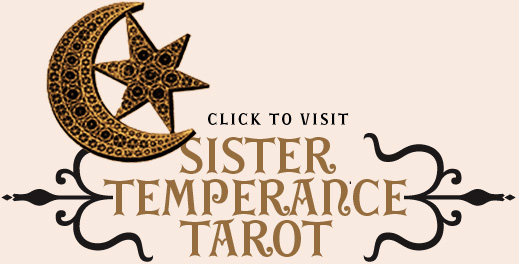
5 comments
I was thinking about that Mary Oliver poem as soon as I started reading this. I think about that poem almost every day, actually.
That series of photos was stunning.
Sometimes it is hard not to become small and hard and cowardly when you have been broken. I admire your commitment to kindness and compassion so very much.
Angel, I wish that you were around so that I could talk to you. Sometimes when I look at the gorgeous pictures of you and all the beautiful things you decorate your life with, I still feel like the 15 year old internet fangirl that I was when I first discovered your existence. But now that I’ve grown up somewhat and have been through a few more shatterings and rebuildings, I deeply, sometimes painfully resonate with your writing.
There are so many things we could talk about. I don’t know when I will ever make it to Texas, but I hope that I can see you sometime in the not too distant future.
by Sophie on February 25, 2013 at 11:11 am. #
This was so powerful. I have been hearing the name Pema Chodron everywhere recently–my mother bought one of her books for my sister-in-law, who is grappling with some big, scary things. I’m reading “Taking the Leap” right now. I also heard her mentioned in an interview with Mike White, the creator of “Enlightened” on HBO…which, if you are not watching, you should be, as it deeply relates to all of what you wrote about on both a personal and collective scale. He recently closed an episode with Joanna Newsom’s “Esme,” and the refrain “kindness prevails” from the song stuck with me for days.
by Melissa on February 25, 2013 at 1:40 pm. #
Angel,
Please know that what you choose to share is never too sad, too much or wrong somehow. You have been blessed with a gift for helping others to see a path out of the darkness, and through your writing, you find words for the kind of bewildering sorrow that turns our own words to stone. There is such honesty and power pressed tight inside every word you say and please don’t ever doubt that…. Your truth strikes at the heart of me and everything I have survived, and your light shines down into the most secret of hiding places, the dark crevices that have been closed off & bolted down for so long. When you write about the pretty things, my heart brims over with joy….but when you share with me the true heart of your experiences, I feel more comfort and reassurance than I could ever truly convey, and for that I will always be immeasurably grateful. x
by Misha on February 25, 2013 at 6:35 pm. #
Hi! February was a strange month, in this land of intense winter. As I write this, it is still snowing outside. It has been snowing since late last night, and will continue, they say, for the next three days. A winter like this makes you quiet, makes you think. I think about all sorts of things, for hours at a time: just reflecting . I wish you could come here for a while next winter, and experience it. Love you!
by Patience on March 1, 2013 at 9:24 pm. #
Oh another beautiful post, thank you as always for sharing. Both those poems helped me through my first heart break. I do think sorrow can be very humbling and heart wrenching and opens one up to kindness so much more.
by caroline on March 7, 2013 at 1:53 pm. #